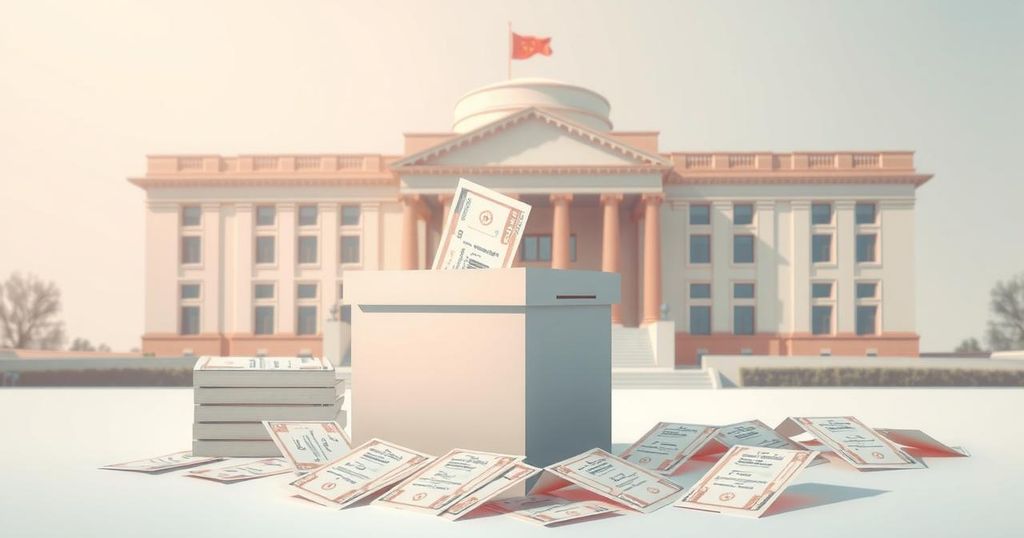Kosovo Elections: Kurti’s Party Poised for Victory, Faces Coalition Challenges

Kosovo’s parliamentary elections have positioned Prime Minister Albin Kurti’s ruling party to win the most seats but lacking a majority. Hostilities with Serbia remain a defining political challenge, leading to expected coalition negotiations. The electoral outcome reflects ongoing tensions and economic priorities in one of Europe’s poorest regions.
In Kosovo’s recent parliamentary elections, Prime Minister Albin Kurti’s ruling party is set to secure the most seats, according to the election commission’s announcement on February 10. Despite this, his party fails to gain the necessary majority to form a government independently. The election primarily focused on Kurti’s attempts to reduce Serbian influence in Kosovo, while the opposition emphasized economic improvements in this economically challenged region.
As no party attained a significant majority in the 120-seat parliament, Kosovo faces potential coalition negotiations and political maneuvering that may last several days or weeks. Of the legislative seats, twenty are designated for minority parties, including ten reserved for Kosovo’s ethnic Serbs. Preliminary results reveal Kurti’s Vetevendosje party securing approximately 41% of the votes, while the Democratic Party of Kosovo and the Democratic League of Kosovo trailed with 22% and 17%, respectively. Voter turnout stood at around 40%.
Historically, long-time rivals PDK and LDK have collaborated to establish coalition governments following the independence war from Serbia in the late 1990s through international mediation. During the campaign, Kurti indicated a willingness to accept opposition status should his party fail to secure a majority, yet he expressed intentions to form a government after the results were reported, congratulating his supporters on their victory.
The initial vote count encountered difficulties owing to a software malfunction within the election commission, delaying result announcements. Nevertheless, by Monday morning, the official website published the election results successfully. Kurti’s administration marks the first government to complete its full term since Kosovo’s declaration of independence.
Kurti’s leadership has experienced challenges, particularly following the collapse of EU- and US-mediated negotiations with Serbia in March 2023, leading to unrest in northern Kosovo, including violence directed at NATO peacekeepers. His government has also worked to dismantle Serbian institutions in Kosovo, closing Belgrade-affiliated banks and post offices while banning the use of Serbian currency and vehicle plates. Despite the tumult, Kurti has maintained a steadfast approach, despite potential conflicts with Kosovo’s crucial Western allies.
The recent parliamentary elections in Kosovo highlighted the continued significance of political challenges, particularly regarding Serbian influence in the region. Albin Kurti’s ruling party faces various obstacles as it navigates coalition dynamics in a fragmented parliament. The history of coalition governments formed under pressure from international stakeholders necessitates careful political negotiations, reflecting on Kosovo’s precarious political landscape since its independence. The ongoing tension with Serbia remains a critical issue influencing Kosovo’s domestic and foreign relations.
In conclusion, Prime Minister Albin Kurti’s party is positioned to emerge with the most seats in Kosovo’s latest parliamentary elections but lacks the majority needed to govern independently. This outcome sets the stage for a prolonged period of coalition discussions among political factions. Amidst a backdrop of significant tensions with Serbia and national economic challenges, Kurti’s administration must address these complexities while attempting to secure a stable government.
Original Source: www.lemonde.fr








